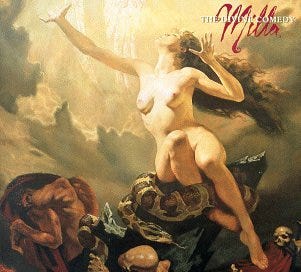It is not the physical death of the body, nor mortal fear inspired by religious myth, nor the agony of physical failure that worries me. The death that I fear so much is that which we experience in disappointment, the death of hope.
I did experience hopelessness once or twice as a child, but not as a young adult. Throughout my 20s and halfway through my …
Keep reading with a 7-day free trial
Subscribe to Media, Art & Biology from London to keep reading this post and get 7 days of free access to the full post archives.




